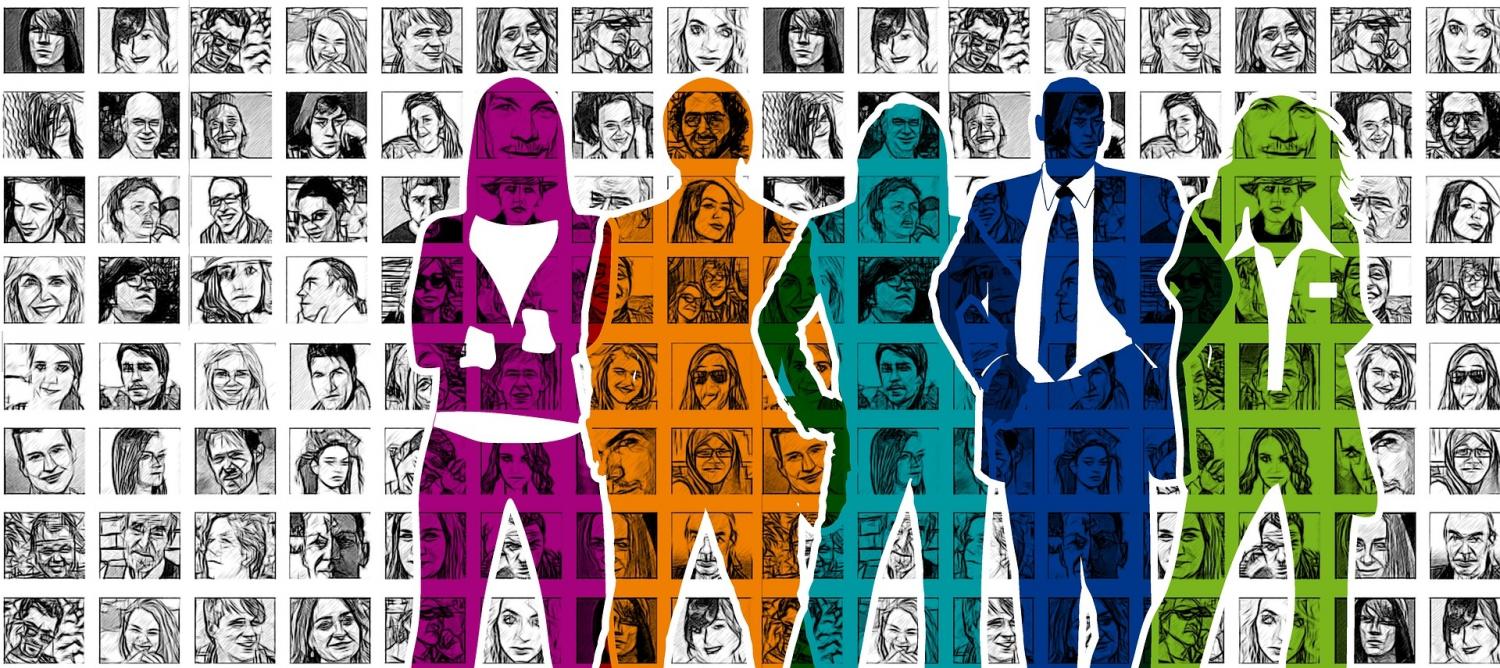
Adding a Dimension to Inclusivity
Although many employers advertise that they strive for diversity and inclusivity in the workplace, many shy away from bringing in people with a fresh perspective, such as New Canadians. In the workplace, Canadian experience continues to be a factor in determining “fit”. The issue is, if we hire for Canadian experience and screen out candidates for lack of it, we end up selecting people “like us” and get “more of the same”, with diversity and inclusivity as collateral damage. Internationally Educated Professionals (IEPs) continue to run into roadblocks – including accreditation issues – as they seek to monetize their skills and talents on the Canadian labour market.
Most organizations will acknowledge that their long-term success depends, in part at least, on being a good corporate citizen. The number of causes, charities, and initiatives being bankrolled and championed by corporate dollars has grown exponentially, which is one of the greatest developments of the past 20 years. Perhaps the time has come to bring another element under the umbrella of inclusivity and corporate social responsibility: the consideration of New Canadians for employment opportunities on equal footing with those who were born here.
Stamping Out Discrimination in Hiring
In July 2013, the Ontario Human Rights Commission issued a media advisory on this topic, stating that it can be discriminatory to ask for Canadian experience. While “Canadian experience” is not explicitly listed in the Ontario Human Rights Code as one of the prohibited grounds, the commission pointed out that “not hiring someone because of where they worked before may be discrimination based on race, ancestry, colour, place of origin or ethnic origin”. This is something the commission wanted employers to become aware of in recruitment processes.
The commission points a cautious finger by stating that “some regulatory bodies (such as the professional associations for accountants or doctors) also ask for Canadian experience” and states that “employers and regulatory bodies should always have to show why Canadian experience is needed”. Addressing newcomers directly, the commission says that “employers should ask about all of your previous work – where you got your experience should not matter”.
The issue of Canadian experience has been simmering for years and the commission’s stance may help influence behaviours and attitudes. Considering that some seven out of 35 million Canadians are new, we simply can’t afford to leave such a great source of knowledge and skills untapped. Moving to a different country is never easy: but, think of the difference it would make on a national scale if we could reduce the churn that comes with underemployment, frustration, and depression.
I remember the topic being discussed on talk radio the day after the commission issued its media advisory. Several new Canadians called in to tell their tales from the labour market. There was some discussion on what Canadian experience actually was. One “old” Canadian called in and said, “Well, they got the run-around and were told to go to hell, so that’s Canadian experience right there”. Another Canadian-born caller said, “If something bad happens in Toronto, like 9/11, we’d be very happy to have cab drivers put their medical background to use. So, why would that be OK, and we tell them to stay in their cabs otherwise?”
An example of just such a situation was the stabbing of a young girl in Flemingdon park in Toronto in December 2015. A passerby, Nuri Tamanna, performed CPR on the girl and cared for her until paramedics arrived. The passerby was a trained doctor from another country who wasn’t allowed to practice here.
My friend Nora recently pointed out that Canadian students attending medical school in the U.S. come back and realize they’re categorized as “International Medical Graduates” and have to pass equivalency tests, which is a tedious process. Once they pass these tests, they need to compete with students who attended medical school in Canada and have priority based on that.
Roadblocks to Progress
Even within Canada, we encounter barriers that don’t make any practical sense. A few years ago, my friend Arun was stunned to learn that his engineering membership in Ontario was not accepted in Alberta. This attitude will catch up with us at some point when we are short-handed and no longer competitive. If we want to attract talent, we need to get the gatekeepers out of the way. As Arun said, “There is no point in advertizing that we need certain skills and have people wait in their home country for years while their application is being processed, only to get here and be denied or delayed certification.”
One of the reasons for the slow progress is that there are groups, parties, and entities with a vested interest in the status quo – in controlling market conditions and boosting wages by keeping competition out the door and services and skills artificially scarce. A 2011 study by Alan Krueger at Princeton University examined the influence of licensing on the labour market, noting that occupational associations have a significant ability to influence legislation. It is a slow process to effect legislative changes and influence regulatory bodies – especially professional associations, whose prime fealty is to their existing membership.
I believe in structure, processes, and standards as part of the fabric of our economy and society, provided that these serve a purpose. Putting up random roadblocks and calling it due diligence doesn’t benefit anyone. Making sure that immigrants speak English or French is fine, but putting in place a mind-numbing process that chews people up and spits them out is counterproductive.
This is where it becomes a branding problem for us as a country – do immigrants see a decent return on investment in a reasonable time in Canada? Or, will they choose a different destination that offers faster accreditation, less hassle, and more opportunity? Having pre-screened, well-qualified and highly motivated New Canadians struggle for years doesn’t help anyone.
Canada has a fantastic image in the world and its role in defeating dictators in WW II, keeping the peace, and building great prosperity in subsequent decades prompted millions of immigrants to make Canada their new home. As we continue to process new immigrants every year, we need to make a real effort to assess and accredit their skills and qualifications within months or even weeks of arrival. This would help reduce the anxiety that comes when people burn through their savings while they try to make inroads, without any real perspective of finding meaningful and suitable employment.
Walking the Talk
To really live the stated values of inclusivity and diversity, it is crucial to change the mindset of employers and recruiters who may have an applicant testing system that filters prospective employees and may lack training in managing IEPs or properly assessing their strengths as applicants. As always, change within organizations needs to come from the top and trickle down.
It doesn’t have to be complicated. Some 10 years ago, with full support from the CEO, I introduced an assessment system at a financial institution that looked at applicants’ qualifications only. We determined which skills and experience were needed for doing well in a certain job – let’s say a bank teller position – and then awarded points for the kind and level of education applicants had, and for their customer service and banking experience. We deemed it irrelevant where they got their education and experience; it was basically a matter of convincing middle management that treating customers with respect, handling transactions, and balancing at the end of the day was the same in Toronto as in Tehran. By only looking at what applicants brought to the table, we leveled the field and judged each candidate on his or her merits. Within months, it became the new normal.
CAOs, CEOs, General Managers, Boards, and Councillors have the opportunity to educate their organizations and drive home the point that immigrants’ Caribbean, German, Russian, Indian, or Iranian experience can be just as valuable as the Canadian kind. New Canadians went through a process and we let them in based on their qualifications. I think the time has come to allow them to become self-supporting within Canadian society and live the full and free life that all of us want.
It would mean a big step forward if organizations in Canada adopted integration of IEPs as part of their corporate social responsibility. By setting an example, municipalities could break new ground at the local level and inspire other Canadian employers to change. What I mean here is real change: different behaviour because of a change in attitude – not modified behaviour because of legislation. As President Kennedy said in his Civil Rights speech in June 1963, “Law alone cannot make men see right.” Instead of over-examination of details and putting people through a joyless and inefficient process, the message to newcomers will be “Welcome to Canada.”
_________________________
Evert Akkerman is an HR professional based out of Newmarket, Ontario and founder of XNL HR. In November 2016, he was named one of the Top-25 HR professionals in Canada by the Canadian HR Reporter. Evert can be reached at info@xnlhr.com.
Note: this article was published in Municipal World Magazine, October 2016 edition.













